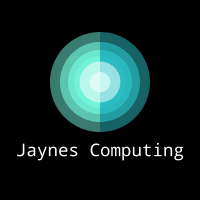
Dynamism & Complexity
A key in today’s hectic and demanding commercial world is the speed set when making important operational decisions and cycle-times in supply chain management.
Many experts in the field of supply chain believe the level at which machine automation will affect their processes will double by mid-decade.
This gives business leaders cause for concern as the global supply chain networks become more dynamic and, with it, grow in complexity. With this dynamism and complexity comes the headache where margins of error become less and less, brought about in part to our continued global and digitalized world.
The need to accelerate productivity (from a growing world population with greater consumerist demands) shows us how utilizing the power of artificial intelligence (AI) and other deeptech sectors like quantum computing (QC) in supply chains and logistics is the only way of dealing with the problem.

Companies leveraging this technology include Avanetix from Germany, Poland’s Beit and Zapata Computing from the US.
“The technology [quantum] is an exciting development for the logistics industry because it allows us to solve the recurring problem of finding the most efficient route between multiple nodes, which becomes increasingly difficult in a complex environment. The pursuit of rapid modeling and testing of complex designs and materials — through quantum computing — will help manufacturers produce superior ultra-efficient assets that could eventually be deployed in the logistics industry.”
— Justin Baird, Head of DHL’s Asia Pacific Innovation Center
Jaynes Computing, too — a Toronto-based startup founded in 2019 by German Alfaro, part of the Creative Destruction Labs’ Quantum Stream 2019/20 program — is developing an AI-as-a-Service, cloud-based product that employs quantum machine learning (QML) development to help enterprise companies improve the efficiency of resource-intensive supply chains, by optimizing inventory management, pricing, and distribution. And in today’s ever-changing business world, such problem solvers are a welcomed sight.

Jaynes Computing
The startup’s novel probabilistic ML methods, ranging from Gaussian Processes to Deep probabilistic models, will help improve upon current practices in resource allocation-inventory management.
And the advantage to Jaynes’ approach?
Its AIaaS (AI as a service) empowers commercial enterprises of varying sizes and industries “to forecast and optimize their inventory and other resources using state of the art Probabilistic Deep learning technology, developed in house, that takes advantage of the most advanced hardware like multicore clusters and GPU’s, also we are at the forefront of Quantum Machine learning development. We are working on scaling machine learning to Near Intermediate Scale Quantum Computers (NISQ)”.

All this has been done through Alfaro’s planning and creation, Jaynes Computing’s founder. With an MS in computer science from UC San Diego, before starting Jaynes Computing he spent time as a graduate student researcher, teaching assistant, ML engineer, and advisor.
The support from The Creative Destruction Lab — via its know-how and non-equity assistance it received — should help Alfaro and Jaynes reach the next level of commercialization. And then who knows?
If you found this article to be informative, you can explore more current quantum news here, exclusives, interviews, and podcasts.
















